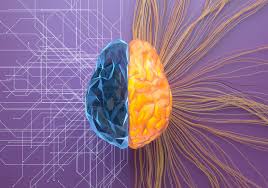A groundbreaking study has established a crucial link between the neurotransmitter dopamine and the mentalizing abilities of healthy individuals. Mentalizing, the cognitive process that allows people to understand and attribute mental states such as thoughts, feelings, beliefs, desires, and intentions, is essential for effective social interactions and empathy. This study sheds light on how dopamine levels in the brain can significantly influence these abilities.
Dopamine’s Functions
Dopamine is a well-known neurotransmitter involved in pleasure, motivation, learning, and movement control. It is integral to the brain’s reward system, reinforcing behaviors that bring enjoyment and satisfaction. Low levels of dopamine are linked to neurological conditions like Parkinson’s disease, which primarily affects motor functions and can also cause socio-cognitive issues, including problems with emotion recognition and mentalizing.
New Insights into Dopamine and Mentalizing
Until recently, the connection between socio-cognitive problems and dopamine imbalances was not well established. The new study, led by Dr. Bianca Schuster from the University of Birmingham’s School of Psychology, bridges this gap, highlighting dopamine’s broader role in brain function beyond just motor control.
Dr. Schuster explains, “While the mentalizing abilities of people struggling with Parkinson’s may not be the main focus of treatment, it nonetheless has a huge impact on people with the disease. Gaining a better understanding of how dopamine imbalances may affect mentalizing processes in the brain could therefore be really significant for individuals, as well as gaining a better understanding of the secondary effects of the drugs prescribed for Parkinson’s and other disorders.”
Experimental Findings
The research involved 33 healthy volunteers in a double-blind, placebo-controlled experiment. Participants were administered haloperidol, a drug that blocks dopamine receptors, on one day and a placebo on another. They completed an animations task, interpreting brief videos of triangles interacting, and judged emotions depicted by whole-body point light displays showing only joint movements.
The study revealed that after taking haloperidol, participants were less able to accurately ascribe mental states to the interactions in the animations. This impairment was linked to the drug’s effect on emotion recognition.
Dr. Schuster notes, “The main implication of our work is that in disorders with dopamine dysfunctions, in addition to producing the primary symptoms associated with these disorders (such as motor symptoms in Parkinson’s disease), the dopamine imbalance also affects individuals’ socio-cognitive abilities. This work could have implications for the way in which we treat Parkinson’s in the future, but also the way in which we use any drugs which affect the action of dopamine in the brain.”
Implications for Treatment
The study opens new avenues for understanding the broader effects of dopamine imbalances on mentalizing processes. It underscores the need to consider socio-cognitive abilities when treating Parkinson’s and other dopamine-related disorders. Traditionally, treatments have focused on alleviating motor symptoms, but this research suggests a more holistic approach is necessary.
By considering both motor and socio-cognitive aspects, healthcare providers can offer more comprehensive care, potentially improving the overall quality of life for individuals with dopamine-related disorders. This approach may lead to better patient outcomes and more effective treatments.
In summary, identifying the link between dopamine and mentalizing abilities marks a significant advancement in understanding the brain’s complex functions. This research highlights the importance of considering the broader impacts of dopamine on both mental and emotional processes. The full study is published in the journal PLoS Biology.











